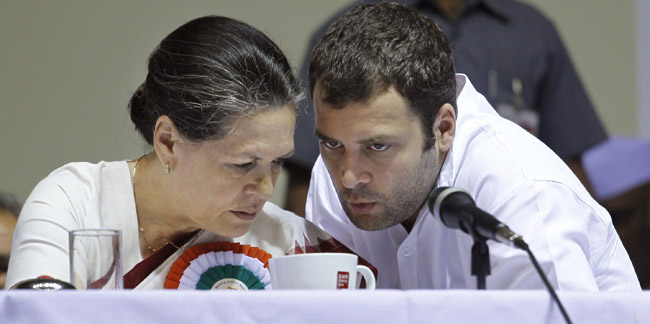
Congress vice president Rahul Gandhi said Thursday that his mother Sonia Gandhi was breathless when she was rushed from parliament to hospital two months ago.
But although she was ill, "she was adamant that she wanted to vote in parliament" for the landmark Food Security Bill, which would ensure cheap food for the poor, Gandhi told an election rally here.
It is the first time Rahul Gandhi has spoken publicly about his mother and Congress president's sudden illness while the Lok Sabha was debating the food bill Aug 26.
"I dragged her to hospital," a visibly emotional Gandhi told a massive Congress rally in Madhya Pradesh.
"She was unable to breathe when we reached the (hospital). She had tears in her eyes. She said 'I fought for the bill and I wanted to vote on it but I couldn't'," said Rahul Gandhi.
Sonia Gandhi was rushed that day to the All India Institute of Medical Sciences in New Delhi for treatment.
Parliament has since passed the bill which gives right to subsidised grains to two-thirds of India's 1.2 billion population, numbering around 800 million, the largest such scheme anywhere in the world.
The bill is the pet welfare measure of Sonia Gandhi and was a part of the Congress election manifesto of 2009.





Comments
Add new comment